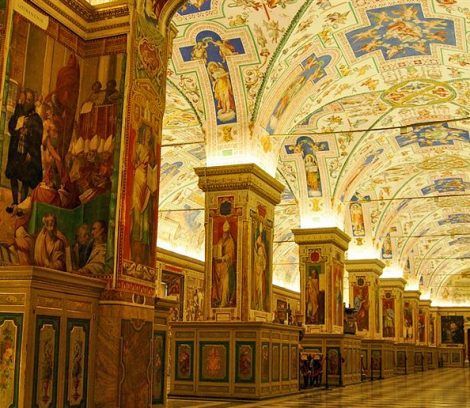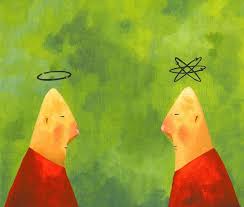Christmas
“… the time came for her to have her child, and she gave birth to her firstborn son. She wrapped him in swaddling clothes and laid him in a manger, because there was no room for them in the inn.” Lk. 2:5
Luke, one of the paramount storytellers of all ages, begins his “greatest story ever told” with these ominous words:
“In those days a decree went out from Emperor Augustus that all the world should be registered.”
Luke clearly wanted to begin his gospel account by creating a contrast, a distinction. He wanted to show that the difference between the “power” of the great emperor Augustus who ruled “all the world” was the complete opposite of the “power” of the child born behind an out-of-the-way inn, in a backwater nothing of a town called Bethlehem, with only a manger for a bed.
Luke wanted to present this child of a common laborer as a rival to the great Augustus.
Look at the difference Luke creates:
Mary’s child is born in the midst of barnyard animals; Augustus in the midst of grandeur.
Mary’s child is placed in a manger; Augustus dwells in a palace.
And then the ultimate contrast:
Immediately after this peasant child is born, a “multitude of the heavenly host” sing the birth announcement throughout the skies: Savior, Messiah, Lord of the Universe – all names attributed to the emperor Augustus. Luke takes those grandiose titles that Augustus claimed and bestows them on this child born in a barn.
God has intervened in human history.
Luke then proceeds to outline the marked difference in which the two – the child born of Mary and the emperor Augustus – approach the issue of power. What does power look like for these two?
For Augustus, it is a case of power over people.
The whole point of the census that brought Mary and Joseph to this provincial town was to register “all the world.” It was time to count the people, to work out the tax rates, to remind citizens and residents of the known world that the empire has the power to exact from every last one of them whatever and whenever the empire desires.
The baby born to Mary and Joseph, on the other hand, is God with the people, not over them … a God who lifts up the oppressed and fills those hungry in body, mind, and soul with all the blessings of abundant love.
In this child, God turns the tables on the powers of the world.
The first will be last.
Now, here we are today. What Christmas still dares us each to do is to become like this child: vulnerable, powerless, open to God’s infinite grace. Grace that unseals our eyes so that we can see:
See the need for shelter for all people.
See the need for loving care of the most destitute.
See the need for being present to those oppressed by loneliness and other heartaches.
Ultimately, though, what Christmas exemplifies is what the world we live in today cries out for so desperately: peace, reconciliation, and the end to violence and interminable conflict.
Author Charles Dickens certainly “got” the message of Luke’s gospel. And, second only to Luke’s tale, Dickens’ A Christmas Carol most affected the way we celebrate this feast to this day.
His story also deals with the contrast between two versions of how to use power:
Scrooge and Tiny Tim. Power over vs. Power with.
Due to the profoundly humiliating experiences of his own childhood, Dickens was unusually sensitive to the plight of the poor. The appalling working conditions forced upon children in England at the time of his writing only deepened his cry for social justice.
After Dickens’ death, A Christmas Carol was regarded as a “new gospel” and was considered unique in that “it actually made people behave better,” in the words of one critic.
Both the old gospel of Luke, and the more recent one of Charles Dickens, preach the same message – one best summarized by St. Irenaeus spoken way back in the second century:
“Because of his boundless love, Jesus became what we are that he might make us to be what he is.”
It’s a miracle that takes place within us.
As one character in Dickens’ story puts it: “I get it now! If you GIVE, then it can happen, then the miracle can happen to you.”
What miracle, what wonder, what dream will you allow this Christmas to create in your life?
What kind of power will you embrace, the power of “over,” or the power of “with”?
What kind of peace, what kind of reconciliation will you initiate?
Perhaps the answers to these questions will be determined by what kind of manger is being created in our hearts. Hopefully, it will be one that will bring each of us to our knees and encourage us to join in with the angels singing:
“Glory to God in the highest, and on earth peace.”
Merry Christmas!
And, in the words of Tiny Tim: “May God bless us, everyone!”
Ted Wolgamot, Psy.D.
NOTE: Quote for Christmas from Sr. Rachel:
“Each of us is an innkeeper who decides if there is room for Jesus.” (see Luke 2:7)
NOTE:
“In Luke’s gospel, angels rejoice when good things happen on earth …. Heaven and earth come together; the human race is connected to the Divine Source. This communion with God has been God initiated because God is love, and this love naturally flows outward into people. When people receive this favor, the result is peace. Peace is the restoration of relationships. All who are separated and alienated return into one community. This song is the angelic way of honoring the double commandment of love – to love God with all your heart, soul, mind and might … and your neighbor as yourself. This great ambition is no longer an ideal. Its historical embodiment has been born – Jesus Christ, one in being both with God and the human.” John Shea
NOTE:
Pope Francis encouraged the faithful throughout the world to say their own ‘yes’ to Jesus at Christmas without making excuses.
“Instead of complaining in these difficult times about what the pandemic prevents us from doing, let us do something for someone who has less: not the umpteenth gift for ourselves and our friends, but for a person in need whom no one thinks of.”
Urging Christians to turn to those in need during the holidays, Pope Francis said those who are suffering “belong to us. It’s Jesus in the manger. The one who suffers is Jesus.”
“May Christmas be a time of drawing nearer in this brother or sister. In the needy brother, the manger to which we should draw near with solidarity. This is the living nativity. This nativity is meeting the true redeemer in those who are in need.”




